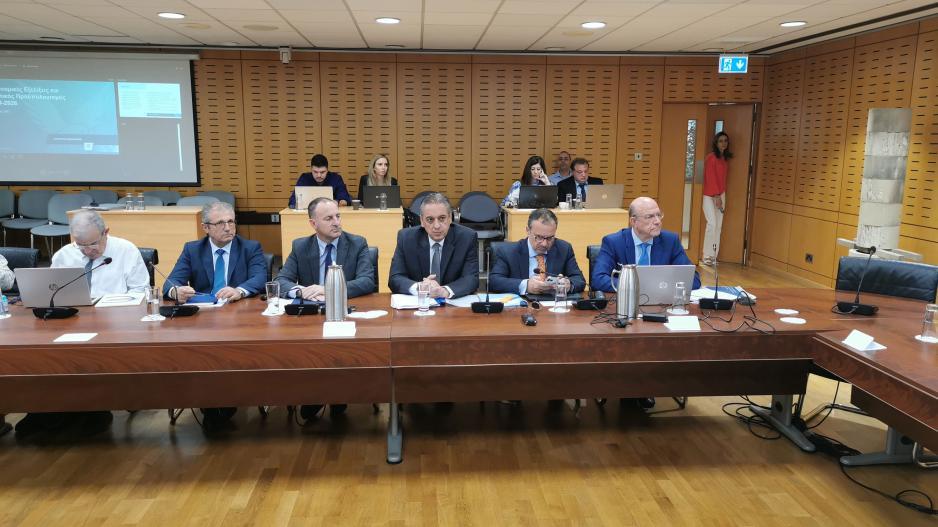Inflation, Interest Rates, and Climate Risks Highlighted as Key Macroeconomic Challenges
Keravnos Showcased the Budget Details to the Parliamentary Committee of Financial and Budgetary Affairs
Finance Minister Makis Keravnos unveiled the 2024 state budget, placing emphasis on safeguarding fiscal stability. The budget is designed to support both the green transition and digital transformation, thus setting the stage for a more modernized economy.
Keravnos showcased the budget details to the Parliamentary Committee of Financial and Budgetary Affairs, initiating discussions expected to culminate in a debate in the House's plenary by mid-December.
Elucidating the budget's merits, Keravnos remarked, "Given the current backdrop of frequent negative developments, the budget surplus ensures we're equipped to meet unforeseen challenges and uphold our European commitments concerning public debt and other obligations."
Keravnos also provided an overview of the Finance Ministry's macroeconomic forecast. He remained optimistic about the medium-term prospects for the Cypriot economy. However, he pointed to uncertainties exacerbated by the recent crisis in Israel. It's noteworthy that the budget was formulated before the Israel crisis, so potential ramifications from this event haven't been factored in. Moreover, the government's €196 million support package hasn't been integrated into the budget figures.
The Finance Minister projects an economic growth rate of 2.9% for 2024, marking an uptick from this year's 2.4%. He anticipates this momentum will carry forward with growth rates of 3.1% in 2025 and 3.2% in 2026. "It's crucial to sustain this growth, which is substantially higher than the Eurozone's average rate of 0.8%," Keravnos added.
On the topic of macroeconomic challenges, he pinpointed concerns including the sharp inflation increase eroding real incomes and impacting consumption. This, in turn, could dampen state revenue. Additionally, Keravnos flagged potential pitfalls like climbing interest rates, which might curb growth, increased state expenditure for the National Health Service, and the tangible risks presented by migration trends and climate change.
In response to inquiries from Members of Parliament, Keravnos expressed unease about the escalating state Wage Bill, which now stands at €3.7 billion. He stressed the unsustainability of this upward trajectory, warning of potential complications if unchecked.
Drawing a firm line on labor negotiations, the Finance Minister stated he would resist further financial demands from trade unions. However, he is open to discussing wage hikes for lower-income public service employees.






